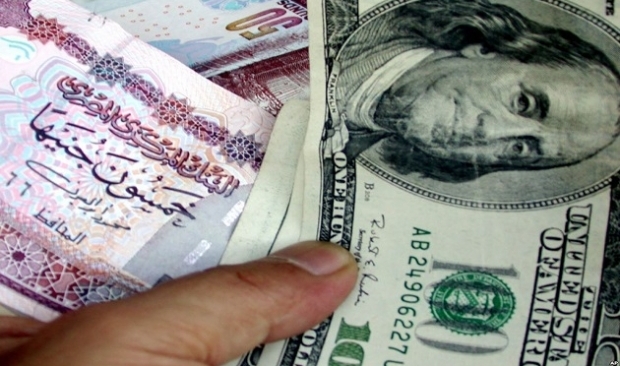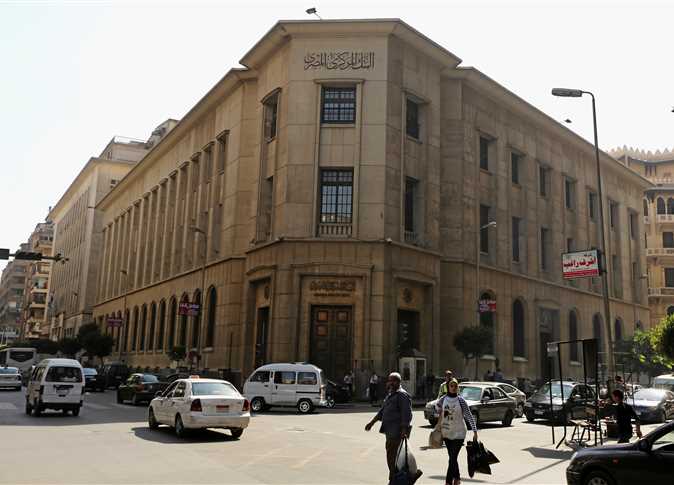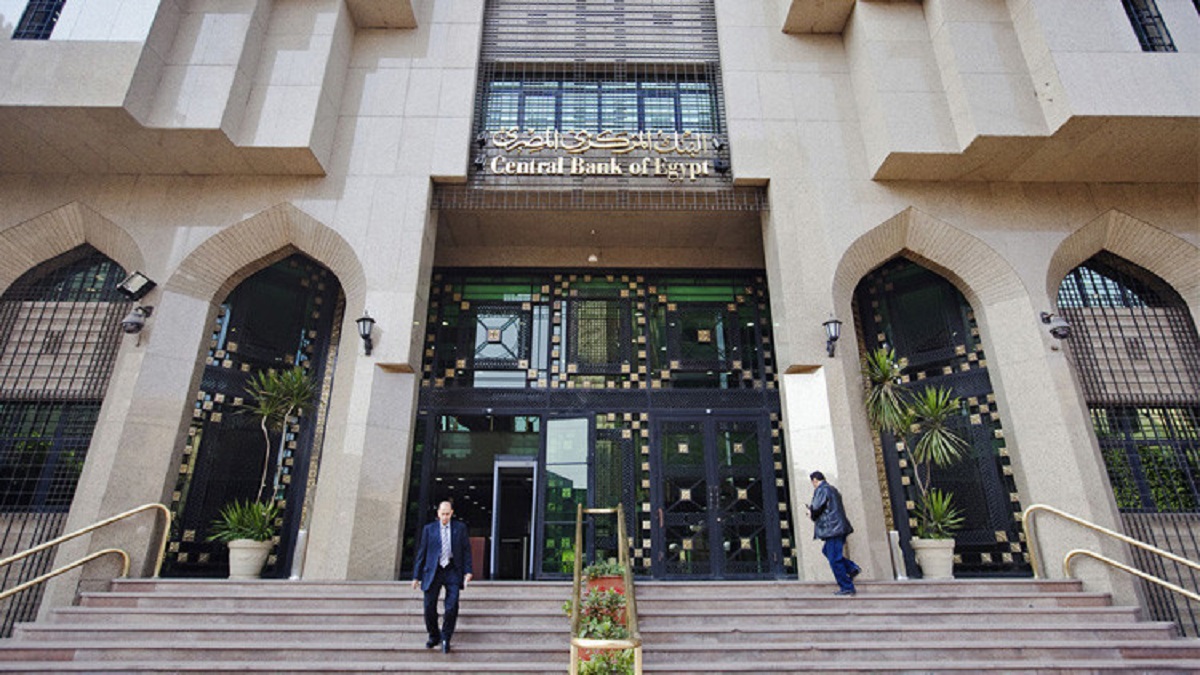In the past year, Egypt has been dealt a series of crippling economic blows, but the Egyptian pound has not depreciated greatly, thanks to the Central Bank of Egypt and some of its costly measures.
But as the country’s political leaders embark on a longer-term economic policy with a strapped budget and a decreasing arsenal of currency bolstering measures, many are wondering how the pound can avoid a significant loss in value in the coming months.
Most economists and analysts see it as inevitable. The question remains, though, as to how the bank and the country’s leaders will tackle the currency’s adjustment and lessen its effects on a society already struggling with unemployment and rising food prices.
The pound fell to 6.10 to the US dollar Monday, its lowest since 30 December 2004.
The fall was largely unexpected, coming a week after President Mohamed Morsy said there was no devaluation on the horizon, amid rising fears that it was one of the conditions of the US$4.8 billion loan from the International Monetary Fund.
He told Reuters that his government would rely instead on investment, tourism and exports to balance its payments.
But Monday’s devaluation tells a different story, one in which the Central Bank, not the president, holds the reigns to depreciation.
By law, the Central Bank of Egypt is an independent entity with the power to devise and implement the general monetary objectives of the government. It could have used its reserves to reverse Monday’s fall had it so wished, as it has done in the past.
In this story, the timeline is uncertain, but depreciation seems to be unavoidable.
An economic inevitability
Tourism and foreign investment fled due to the country’s political unrest over the past 18 months and stayed away during a prolonged and disordered transition. At its worst, the country’s gross domestic product contracted by a substantial 4.2 percent in early 2011.
As of July, the country’s GDP growth rate had yet to return to its pre-uprising levels.
Throughout all of this, the Egyptian pound has fallen incrementally, but not by a large margin. It lost a total value of 10 piasters over the course of the year, despite intense international market pressure for devaluation.
It is a remarkable feat of currency management, one that earned Central Bank of Egypt Governor Farouk al-Oqda the Euromoney award for best central bank governor in the Middle East and North Africa in 2011. But it has come at a cost.
The bank has burned through more than US$20 billion to support the pound since January 2011, roughly $1 billion per month, using foreign reserves — mostly dollars — to put up pounds and keep its value from slipping.
It’s a rate of spending foreign reserves that the country can’t afford to keep up, despite recent international financial support.
Qatar has deposited $500 million out of a promised $2 billion directly into the central bank’s coffers last week. Saudi Arabia gave $1 billion in May. And two weeks ago, Egypt entered negotiations with the IMF for a $4.8 billion loan.
Though these loans will help the government delay and cushion devaluation, economists say these amounts cannot postpone it indefinitely. Taking into account the recent Gulf money, foreign reserves currently total $15.1 billion. At the government’s current rate of spending, it seems the central bank cannot afford to keep the currency artificially high for much longer than a year.
Ahmed Ghoneim, a Cairo University economics professor who has studied the Central Bank of Egypt’s monetary policy, says that from a pure economic standpoint, a point-blank, clear-cut devaluation makes perfect sense; it is an inescapable effect of the past year and a half.
“But from a political economy position, I doubt this can ever happen,” he tells Egypt Independent.
That means, he says, that the central bank will have to bide its time and devaluate, but carefully and by small increments. He expects a devaluation of 10 piasters a year, in increments of 2 piasters, over the course of three to five years.
Otherwise, a sudden devaluation could paralyze the domestic economy and have a negative effect on the entire region.
Though a depreciated pound would immediately make the country’s exports cheaper, therefore possibly boosting export production across the economy and making the country more affordable for tourists, economists have repeatedly shown that in the short term, devaluations have a serious dampening effect on economies, particularly in mid-developed nations such as Egypt.
Ghoneim is confident that by taking into account the political and social sensitivities, the central bank will pursue a steady devaluation that will not shock the economy. He also says a sudden devaluation is likely not a condition for the IMF loan.
The IMF, he says, sees that Egypt already has a host of economic troubles to deal with, the most important of which is a repeal of the country’s subsidy policies — an elephantine burden on the budget.
“They don’t want devaluation either,” he says.
Ghoneim gives short shrift to critics of the loan, who he says don’t understand the direness of the situation, arguing that both the loan itself, which is a mark of approval for international investors, and the difficult conditions of reform it requires are necessary.
“We don’t have to like it,” he says. “But it’s how the national economic situation is.”
He trusts that the central bank and Oqda will manage the process in such a way as to not shock the local economy or foreign investors.
“The governor has proved he is clever,” Ghoneim says. “I believe he will manage this right.”
A psychological blow
One of the most difficult aspects of currency devaluation is intangible: a perceived psychological blow to the country’s pride. After all, as the currency decreases, the international market value of all the products and services in the society decreases, from snack foods to technological services.
For this and other reasons, devaluation tends to discourage investors from holding the currency, and makes profits from standing investments in the country less valuable abroad. On the other hand, it makes new investments cheaper.
Augurs of devaluation are among the self-fulfilling prophecies of macroeconomics. Investors react fearfully, bringing about a worse version of the very devaluation they feared.
For this reason, Ghoneim says the central bank will make the devaluations unannounced at times when the economy is doing relatively well.
“When people think we’re out of the trap, then he’ll move it,” he says. “They will do this by being stable in bad times and in good times, moving it very, very slowly.”
He sees no break with the central bank’s way of doing things over the past 12 years. In 2000, Egypt floated its currency, removing it from a fixed exchange rate. Over the next four years, the central bank allowed the currency to slowly reach a rate that reflected its international market value.
From 2000 to 2004, the pound moved incrementally from a value of 3.42 to 6.28 to the dollar, with no disastrous disruption to the market. Ghoneim imagines a similar scenario in the coming years.
“I see no change to their governing ideology,” he says.
The beginning of the fall
But for some economists, the very uncertainty of it all is the greatest danger. The central bank’s careful secrecy and aversion to panic scenarios, they say, could hurt the country’s economy more than it helps.
“I wish the central bank would officially say what is the situation,” says Samer Atallah, assistant professor in the American University in Cairo economics department.
Atallah is also working with the Popular Campaign to Drop Egypt’s Debt.
“You don’t want to send panicking messages. A lot of people are speculating,” Atallah says.
Currency devaluation would likely raise prices across the board and lead to a hike in unemployment, barring any huge increase in Egypt’s export market. As for the IMF, Atallah says, the loan’s accompanying conditions will likely involve austerity measures too harsh for the country’s already struggling poor.
“Why do we resort to measures that deteriorate the majority of Egyptian households, instead of so-called radical measures that might, in the long term, be better?” he says.
He recommended the introduction of limits on capital flight, which would limit the amount of money made through Egyptian investments that foreign investors could take out of the country.
In the 1990s, when southwest Asia was experiencing an economic downturn and a political turnover, Malaysia refused an IMF loan and implemented measures such as limiting capital outflows. The Malaysian economy went on to recover and become one of the strongest in the region.
“We could adopt them on an ad hoc basis,” says Atallah.
Ghoneim says it’s too late for such measures and the IMF loan remains a necessity — and with it, eventual devaluation. Capital outflow limits would not work in Egypt anyway, he says, as dependent as the country is on foreign investment.
But Atallah says facing devaluation and likely austere conditions from the IMF are just too much for the country’s poorest to handle right now.
“We shouldn’t have to bear it at the same time,” he says. “That’s the worst of both worlds.”
This piece was originally published in Egypt Independent's weekly print edition.




